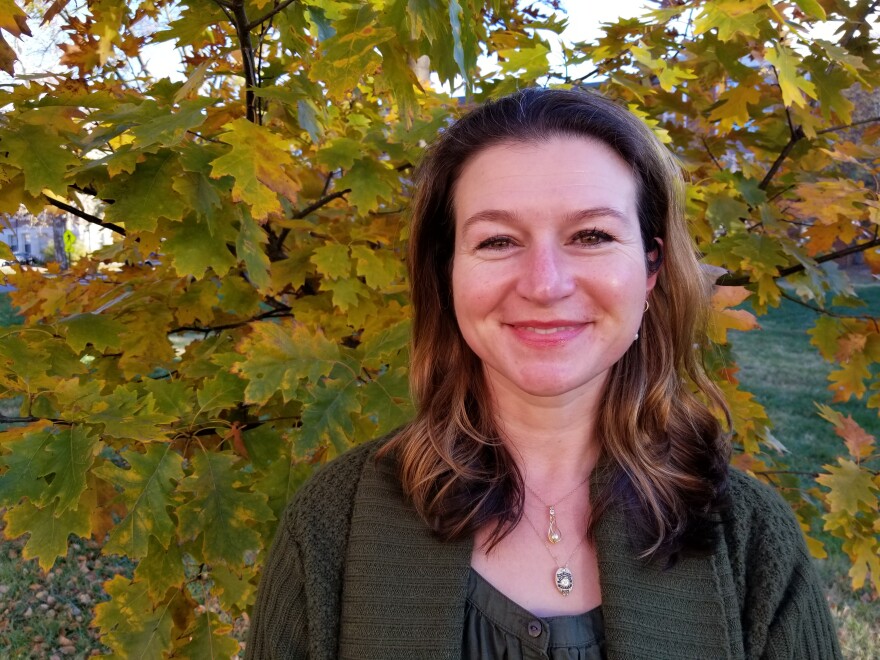This week on Intersection, we bring you a special from Missouri Health Talks. Health reporter Rebecca Smith spoke with Jennifer Carter Dochler, the Public Policy Director for the Missouri Coalition Against Domestic and Sexual Violence (MCADSV) and one of the facilitators of the MO-SART, or Missouri Sexual Assault Response Team.
They spoke about the efforts of statewide and local SARTs – including current legislative efforts to make the response to sexual assault more uniform, victim-centric and efficient throughout the state. They also spoke about the work of SANE nurses, or sexual assault nurse examiners.
You will hear the voices of several SANE nurses who work throughout the state. These were gathered by Smith recently at the MCADSV office in Jefferson City.
Missouri Health Talks gathers Missourians’ stories of access to healthcare in their own words. You can view more conversations at missourihealthtalks.org.
On the Purpose of Sexual Assault Nursing
Dawn Day: I like the fact that I am there for the patient. I am taking care of the patient.
The program allows us to have one-on-one time together. On average, start to finish, caring for a patient takes about four hours. That's what I say. Sometimes I can get done faster. Sometimes it's longer.
I let them feel comfortable in the room. I make them feel as comfortable as I possibly can before we start talking about what happened.
On the Nature of Sexual Assault Exams
Jennifer Carter Dochler: The way evidence is collected for sexual assault is so different. The fact that someone needs to go to a hospital, that they need this trained nurse examiner - that evidence collection is done very different... They [victims] have a lot of health-related concerns because of the nature of this crime. So, the entire evidence collection and how it is done is very unique and specialized.
On the Way Victims Can Be Charged for Their Care
Natalie Maupin: The act of the nurse coming in and conducting the exam - there's not a charge for that. But if you did any medications, like STD medication, or if you did lab work to test for anything. Even though it's… because you were sexually assaulted, those are considered medical. So, it states in the statute, that they can still be billed for that and so a lot of the times, they are.
There's a Crime Victims' [Compensation] Fund, but it can kind of sometimes be hard. It's not an automatic thing.
On Current Legislative Efforts
Jennifer Carter Dochler: We have legislation filed this session that would "modernize" out Crime Victim’s Compensation program. It would still be intended to be a payer of last resort, but it would make it a much easier process for a victim to apply for.
Senate Bill 966 House Bill 2397
One of the current requirements is that you have to report to law enforcement within 48 hours… in the legislation filed, we're getting rid of a specific timeframe because of the nature of these crimes.
And two - someone simply completing the sexual assault kit could qualify as a report. Again, a victim in need is not always thinking, "If I do this, this will qualify me for this program." They are thinking, "Hey. I told somebody. I told somebody about what happened to me."
So, we are trying to make the program, in statute, operate much more like the real-life experience of victims in need.
On Current Non-Legislative Efforts
Jennifer Carter Dochler: We have been trying to coordinate among the crime labs about "Could we have a shared kit no matter where you are in the state?", and so those new kits will be rolling out, and the Highway Patrol is purchasing them for all these communities... We want to make sure, as much as possible, that no matter where you are sexually assaulted in the state, there can be a similar response.
The Coalition is also trying to figure out what we can do to promote interest in individuals becoming a sexual assault nurse examiner. We are working with the Missouri Hospital Association about what can we do to promote interest? Because it is such a specialized field and the people who get into it are really passionate, yet it can also lead to huge turnover.





